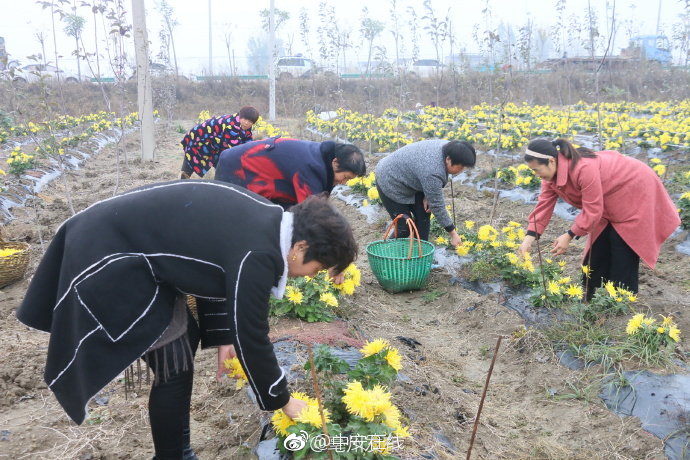08-18,1yv36cxre36i2dx9o8u9il.
What does 厕所 (Cèsuǒ) mean in Chinese?|
When it comes to the Chinese word "厕所 (Cèsuǒ)," many people might wonder what it means. In Chinese, "厕所" refers to a public or private facility used for urination and defecation. In English, it is commonly translated as "toilet" or "restroom." The word "厕所" is a combination of two characters: "厕" means toilet or latrine, and "所" means a place or location. Together, they form the term for a place where one can relieve themselves. In Chinese culture, the concept of hygiene and cleanliness is highly valued, and the design and usage of 厕所 reflect these values. Chinese 沟厕toilets, or "gōu cèsuǒ," are a unique feature of traditional Chinese bathrooms. These toilets are designed with a trench or trough for waste disposal, rather than a bowl or seat as in Western-style toilets. One notable characteristic of Chinese 沟厕toilets is their efficiency in water usage. Unlike modern flush toilets that require a significant amount of water to operate, 沟厕toilets utilize a minimal amount of water for waste disposal. This eco-friendly design not only conserves water but also reduces the overall environmental impact of traditional bathroom facilities. In recent years, there has been a growing interest in eco-friendly sanitation solutions, leading to innovations in toilet technologies. Companies like "性巴克app 成人版" and "黄金软件下载安装3.3.0vivo版大全" have developed advanced toilet systems that aim to improve water efficiency and promote sustainable bathroom practices. Another aspect of Chinese 厕所 culture is the emphasis on cleanliness and sanitation. In Chinese households, it is common to remove one's shoes before entering the bathroom to maintain cleanliness. Additionally, traditional Chinese bathrooms often feature separate slippers or designated footwear for use in the bathroom, preventing the spread of germs and bacteria. While the design and functionality of Chinese 厕所 may differ from Western toilets, both serve the same essential purpose of providing a sanitary and convenient space for personal hygiene. Understanding the cultural significance and practical importance of 厕所 in Chinese society sheds light on the unique customs and traditions surrounding bathroom etiquette. In conclusion, the term "厕所 (Cèsuǒ)" in Chinese refers to a facility for urination and defecation, commonly known as a toilet or restroom. Chinese 沟厕toilets have their own distinct characteristics, emphasizing water efficiency and cleanliness. By exploring the cultural significance of 厕所 in Chinese society, we gain insight into the values and practices that shape traditional bathroom customs. As technology advances and environmental awareness grows, the evolution of toilet design and sanitation practices continues to shape the future of bathroom facilities. Companies like "色丁香五月天" and "留守妇女如狼似虎的预兆" are at the forefront of toilet innovation, leading the way towards more sustainable and efficient 厕所 solutions.
近期国家机构公开研究成果,妻子同意三个人起活动的微博引发热议...|
最近,一则微博引发了广泛关注,题为“妻子同意三个人起活动”的微博内容激起了网友们的好奇心和热议。这条微博不仅让人大呼意外,更是让人产生了各种猜测。究竟是什么样的情节让妻子同意三个人一起活动?这背后到底隐藏着怎样的故事? 在我们揭开谜底之前,让我们来关注一下近期国家机构公开研究成果。最新研究显示,妻子同意三个人起活动可以带来多重益处,比如增进家庭亲密度,促进人际关系,甚至有助于提升幸福感。这些成果对于我们理解妻子同意三个人一起活动的微博也许能够提供一些思路。 然而,即便有了相关研究成果作为依据,妻子同意三个人起活动依然引发了广泛讨论。有人认为这可能是一场浪漫惊喜,也有人猜测可能是一次友谊之旅,而更多人则纷纷感叹:这家伙到底是如何说服妻子的?毕竟,妻子同意三个人一起活动这种情况并不是每个家庭都能够接受的。 有些网友猜测,或许这是一次聚会、一次旅行,又或者是一次工作活动。然而,也有人调侃道,也许这只是一场看电影吃饭的普通行为。不过,不可否认的是,这则微博无疑激起了大家对妻子同意三个人起活动的兴趣和好奇。 不管妻子同意三个人一起活动是出于怎样的原因,大家对此都心存期待。毕竟,家庭亲情、友谊关系是我们生活中最珍贵的宝藏,而这个微博似乎正是在提醒我们要珍惜这一切。也许,妻子同意三个人起活动这件事情并非想象中那么复杂,也可能只是生活中的一次小插曲,但却引起了这么大的反响。 最终,无论妻子同意三个人启动的目的是什么,我们都希望这是一次美好的经历,能够让涉及其中的每个人都拥有美好的回忆。或许,当我们回顾这段过往时,会觉得这是一次成长,也可能是一次收获。让我们期待“妻子同意三个人起活动”的微博背后的所有故事,也相信这段故事的结局一定会让我们心潮澎湃。
来源:
黑龙江东北网
作者:
何光宗、贾德善











 传奇大佬、“立邦”创始人吴清亮逝世!从打工仔白手起家成“亚洲漆王”、新加坡首富!他祖籍潮汕,为家乡捐建上亿元设施,以华人身份自豪
传奇大佬、“立邦”创始人吴清亮逝世!从打工仔白手起家成“亚洲漆王”、新加坡首富!他祖籍潮汕,为家乡捐建上亿元设施,以华人身份自豪 身家数十亿,87岁高龄的“中国最贵在世画家”被爆失联!四段婚姻、多个子女或引发家族财产继承问题
身家数十亿,87岁高龄的“中国最贵在世画家”被爆失联!四段婚姻、多个子女或引发家族财产继承问题























